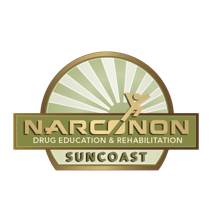Are Drugs the Answer to Drugs?

Drugs have been involved in our society since its inception. Whether it be alcohol, marijuana, or heroin, drugs have always been around. And for as long as drugs have been around, so has the search for a cure for addiction. For many, many years, morphine was a widely used painkiller and still is today. In the early 20th century, to handle addiction caused by morphine, heroin was created as a non-addictive treatment. Then, later, to handle heroin addiction, methadone was created. So the model became that when one drug proved to be just as addictive as the one that preceded it, another one was to created to handle that addiction and so on and so on. It seems that the running idea is that drugs are the answer to drugs, but are they really?
The pharmaceutical industry is a nearly 3-trillion-dollar-a-year conglomerate. They create drugs to go along with “newly discovered” diseases and then endlessly market their “cures.” When it comes to opiate addiction, can we hold the pharmaceutical companies responsible for the widespread epidemic happening today? Or is it our own fault for voluntarily taking these drugs, knowing the risks?
Here’s a scenario:
Someone breaks their arm, goes to the doctor and gets prescribed Oxycodone. After their injury is handled, the doctor cuts them off the Oxycodone and now they get to find out what withdrawal feels like. So, completely dope sick and overtaken by cravings, what do they do? They hit the streets to find some pills and find out they sell for almost a dollar a milligram. After buying them on the street for a while, they become cost-prohibitive as their habit increases. They may have started on 10-20mg a day, but when that stopped taking the edge off, they find themselves buying 6 Roxy’s a day and spending $120-$180 every day to handle their problems, feed their addiction and stave off the withdrawals. Being so expensive, they look for the next cheapest and best thing, so they find heroin. They journey down the rabbit hole of heroin addiction until all the lying, stealing, cheating and manipulating catches up with them and they find themselves in detox, rehab, or in a doctor’s office and being placed on Suboxone to handle the heroin addiction. After detox, they follow up with a doctor to refill their Suboxone prescription and continue taking the drug because, hey, at least they’re not a heroin addict anymore.
So, what’s happened here is that the pharmaceutical industry created a drug that had high abuse potential. Painkillers weren’t designed to get people addicted to them; they were designed to treat severe pain caused by a variety of ailments and illnesses. But when these drugs proved to be highly addictive, the pharmaceutical industry provided a solution to the addiction, with another one of their drugs. Heroin treated morphine addiction, methadone treated heroin addiction, and Suboxone gave an alternative to Methadone. So the question is, what drug is next?
While, yes, Suboxone and Methadone work well for getting a person through their short-term, acute opiate detox, now they’re being prescribed as a long-term, protective measure against relapse. So, one addiction has been traded for another, all developed by the pharmaceutical companies. And while your health insurance might pay for it, if it doesn’t, you’re going to be shelling out upwards of $400 a month for your prescription.
It seems like a strange conflict of interest. Big Pharma creates an addictive drug, lobbies for it to be widely prescribed, and once people become addicted to it, they offer the easy way out; take another drug they created to undo the damage the first one created. This may be a great business model, but what this does is prolong the recovery process. A paradigm shift is needed where addicts are treated without drugs to handle their problems. An addict does not need more drugs to combat the ones they’re addicted to. They need long-term, residential treatment. They need to get to the bottom of why they use drugs. Once they solve that problem, they can finally live a life free of substances and addiction. Then, and only then, can a person truly recover from addiction.


